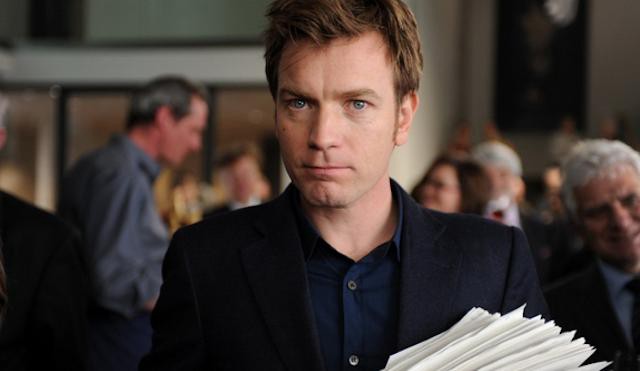1 Source Of Income: Good. 12 Sources: Better!
by Sara Brady

Eight years ago, like a lot of people, my income came from one source: I was an associate editor at Premiere, a magazine about movies. I got to interview actors, writers, and directors and see movies for free, and ten times a year my name was printed in a magazine I’d loved since I was sixteen. We were a small staff, so early on the editors asked me to do a lot of things: I spent three nights on the set of a George Romero movie in Toronto, Christopher Lee called me collect from London, I met George Clooney after he was Danny Ocean and Daniel Craig before he was James Bond. It was a great job, my dream job, and everything was very simple.
Then I got laid off. The magazine folded in early 2007, as I was halfway through a (partially employer-reimbursed) master’s degree. I sobbed in my office after the CEO gave us the news, and then I sat with half my head in a vodka tonic at a generic, brand-new gastropub across the street from the office as the two remaining staffers — the online editor and the movie critic, whom the company had decided to retain so they could keep the website going — survivors’-guiltily picked up the tab. When I packed up my things the next day, I grabbed two framed portraits that had run in the magazine off the walls to take home with me. It wasn’t like anyone would be left to care.
The layoff coincided with two personal tragedies: the sudden death of a young friend, and the more expected passing of my aunt from cancer. After those two closely spaced funerals, I flailed, waking up at noon, watching a lot of Food Network, half-assedly training for a 5K. I managed to finish my spring-semester classes, but when I wasn’t worried about how to pay the rent, I worried about the tuition for the summer and fall terms coming due. I got three weeks of severance and a decent tax refund that year, and I had some savings, but I lived in Manhattan. I couldn’t survive on that for very long.
Luckily, I had a roommate with a vested interest in making sure I could pay my half of the rent. She paid me to write articles for the newspaper where she worked, and after I passed a copy test, I was copyediting pages there from six p.m. to midnight four nights a week. It wasn’t a lot of money, but combined with my severance and unemployment from those all-Rachael-Ray-all-the-time weeks, it kept me housed and fed and able to pay for COBRA until the new semester started and I could get on NYU’s student health plan. I actually paid two months of COBRA premiums with my winnings from Cash Cab, since I no longer had a job and was able to do things like be on a game show at two in the afternoon on a Monday. When my mom saw the episode a couple months later, she called to yell at me for going double or nothing on the last question.
I had eight job interviews in three months, trying to get back on the track I’d been kicked off. I managed one second interview, but no company wanted me on staff. I was starting to realize what had been taken away from me: not just the job, but my livelihood, and a huge chunk of how I defined myself.
A few weeks later, a friend from grad school hooked me up with some fact-checking work at her magazine. For a while I did that from ten to six and copyedited at the newspaper from six thirty to midnight. I found a gig copyediting romance novel manuscripts, some of which were intended for a conservative Christian audience, and therefore the style guide had a full page of off-limits words (like “Halloween” and “dagnabbit”) and situations (no kissing below the neck). One of my colleagues from the old job landed someplace new and needed a part-time copyeditor. It was all hourly work, and of course none of it came with benefits, but bit by bit I pieced together a living.
I finished my master’s degree a semester behind schedule in the spring of 2008. That year I had several regular clients whose offices I rotated between: one week I’d fact-check at a sports magazine, the next week I’d copyedit healthy-living content. I spent a couple of ego-crushing weeks at one of the celebrity gossip magazines — nothing like being told to “just Google” Julia Roberts’s shoe size to let you know where your contribution to the publication ranks. Whereas once I’d had a coffeemaker in my office and posters on my walls, now I carried everything with me that would make my cubicle or desk comfortable for those three or four or five days the job lasted — water bottle, Chapstick, cardigan, emergency Advil and Band-Aids.
I also wrote here and there, and copyedited the romance novels, and proofread the English-language edition of a French graphic design magazine. At one point I got my tax form from the French magazine and showed it to my mother — who was born in France — asking what all the different line items meant. They all read “0 Euros” after I had a lovely conversation with the IRS and figured out which form to file so the Paris-based company wouldn’t withhold 30 percent of my pay. “That one’s for your health care,” she said. “That one’s for your maternity leave. That one’s for day care for the baby, and that one’s for the nurse they send after you give birth.” Jesus Christ, I thought. Why did you emigrate?

I kept going on job interviews. Nothing came of those. But by the time I graduated, I was making enough money that I didn’t worry too much — I was able to pay my rent, and for my health insurance and my tuition. I knew how enormously lucky I was to be in my financial position — one of my former coworkers had used her severance to pay off her remaining student loans, but I didn’t have any kids, didn’t have any debt. I was doing okay.
In 2010, the healthy-living magazine asked me to come on staff full-time as an associate editor, the same level as the job I’d lost three years earlier. Since my most lucrative client was moving its offices out of state in a few months’ time, I gratefully accepted. Having a full-time job again felt weird the first few weeks, but since I was moving to a new apartment, I was grateful to be able to show my new landlady the offer letter with my salary on it. Contributing to a 401(k) again also felt good. I scaled back my freelance work — the first month at the new job I made only about $400 extra, the month after that $350.
After I’d been there a year, that magazine folded as well. This time I wasn’t crushed. This loss, after four more years of catastrophe for the magazine industry, didn’t feel like such a gut punch. I was four years older, yes, and it wasn’t my dream job that had been taken away this time, but I also hadn’t let all my freelance clients go. I didn’t have to panic about the rent, and thank god I didn’t have to pay tuition anymore. I still had the romance novels. I still had the French magazine. My friends bought me sorry-you-lost-your-job-again drinks and forwarded me e-mails from people who needed freelance copyeditors.
I went back to interviewing. In early 2012 I was offered a full-time job, again as an associate editor. By this point it was five years after my career had derailed, five years I’d spent helping execute and polish other people’s ideas without generating any of my own. Since it was an independent magazine, the salary was low, and the editor offered to combine two positions into one in order to get me more money. I would have had to give up all my other clients for this new full-time-and-then-some job, at a roughly 40 percent pay cut. I said no. Four months after I was laid off, I had two new in-the-office clients and kept rebuilding my at-home client list.
Last year my income came from more than a dozen different sources. I copyedit a monthly magazine for the last twelve days of each production cycle, and when I’m not there, I fact-check at a weekly magazine, where my manager is flexible enough to allow me to come in one or two weeks a month, or once every other month, whenever I have a week free and they need help. This year I picked up four new clients. You know those errors in e-books that are optically scanned? I fix those. And when one of the websites I wrote for went under earlier this year, I didn’t even cry. One business’s failure didn’t take me down with it.
In a couple of months I’ll moving again, but out of state this time, so I can’t work for the two in-the-office clients who contributed 47 percent of my income last year. I’m once again looking for full-time work, but in an interview a couple months ago, I accidentally admitted that I’d want to keep doing at least some of my freelance work if I did take the job. They didn’t call me back.
The thing is, I don’t know if I want a full-time job. Obviously it was easier to get an apartment last time with that offer letter, but I don’t know if it’s mandatory. The rental market in northern Virginia seems so different from New York: one apartment complex I visited has been pursuing me like I have the last rose on
“The Bachelorette.” It’s both flattering and unnerving. And I’m less worried about getting health insurance than I would’ve been if I’d made this move four years ago: there’s no Freelancers Union in Virginia, but now I get to find out how Obamacare works. My main worry about relying on those ten to fifteen clients for my whole income is the fact that when I work from home for an extended period of time, I turn into a greasy-haired pajama-clad hermit.
Right now I don’t feel secure enough to depend on one source of income for my whole livelihood. I don’t know if I ever will again. Something about that first layoff broke the piece of my brain that came from being raised by schoolteachers. My parents worked for the same county for thirty years and are now retired, with pensions. When I was twenty-five, I trusted my employer to take care of me, and it didn’t, of course. That seems impossibly naive now, and I’m wary enough and cynical enough to want redundancies in place — not just two savings accounts but backup jobs so there’s always another assignment on tap when the last one ends. Short of a Roland Emmerich movie coming to life, one event can’t wipe out my entire livelihood anymore.
I do wonder, though, how long I can sustain the pace I’ve set for myself over the past couple years. Last year I did forty-three weeks of work for my in-house clients and copyedited or proofread seventy-seven books either on work-at-home days or at night and on weekends. I almost never say no to work. Sometimes when a deadline is looming I proofread on my Kindle at the gym or on the train rather than reading for pleasure (or for one of my writing jobs). In March I spent sixty-six hours on one project — in six days. That one was hard.
I know I’m one of the lucky ones. This isn’t coal mining. I do my job sitting down, indoors, and it’s remunerative enough that I’m able to take vacations where I completely shut down all my work — last year I even took two, but when I got back from the second one, I didn’t get any assignments from one of my clients for a month. I spent that month freaking out that I’d been dumb enough to get off the hamster wheel and had been shuffled to the bottom of the priority list and would surely soon be destitute and toothless, like Fantine.

I’m making a good living these days, but I still worry: that I’m not contributing enough to my retirement account, that the Chicago Manual of Style will stop using the serial comma, that my clients’ businesses will fail or they’ll get dissatisfied with my work, that the entire publishing industry will go under. I wonder if I’ll ever again have a job like that first one, where I felt like I was doing good work that people appreciated, that paid my bills, and that I could leave at the office at six p.m. most nights.
One of the major shifts I made after losing that job was not being as emotionally invested in my work: my name isn’t on most of what I do, so if an author rejects a change I made, it’s her dangling modifier, not mine. I try to find more legitimate sourcing than celebfeetsize.com, but if the editor wants to trust their claim that Julia Roberts’s feet are a size seven, it’s his call, not mine, and it won’t keep me awake at night. (Except for the existential horror of knowing there are websites dedicated to celebrities’ feet.)
But at the same time I miss having a job I cared so much about. That job felt like it was my career. It felt like I was going somewhere. I don’t know where there is for a freelance copyeditor, fact-checker, and writer to go except on to the next job, the next hustle. The person I am today, who can’t trust a single source of income, is better off than the person I was in 2007: I have more skills, more experience, more money saved, and a deep bench of colleagues and friends I can tap when I need more work. But sometimes I miss being that naive twenty-five-year-old. She didn’t know a lot of things, but she cared about a lot of things.
Sara Brady is a freelance writer and editor who lives in Brooklyn for nine more weeks. You can find her on Twitter @sarrible.
Support The Billfold
The Billfold continues to exist thanks to support from our readers. Help us continue to do our work by making a monthly pledge on Patreon or a one-time-only contribution through PayPal.
Comments